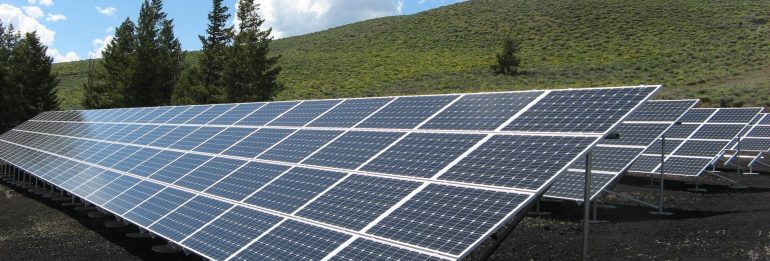In a startling revelation, Scottish Water, a state-owned enterprise, has acknowledged the possibility of its solar farms using components connected to China’s forced labour camps. This admission casts a shadow over renewable energy initiatives, highlighting the intricate and often opaque links between sustainability and human rights.
The Scope of the Controversy
Scottish Water, responsible for supplying nearly all of Scotland’s drinking water, has integrated tens of thousands of solar panels across 66 sites. The total expenditure for these panels amounts to tens of millions of pounds. A notable project in this initiative includes the "super solar" scheme at the Balmore water treatment works in East Dunbartonshire, a facility that provides drinking water to over half a million individuals in the Glasgow region.
While the endeavour might have initially appeared as a significant step toward sustainability, the ties to potential forced labour present a severe ethical dilemma. The ramifications of this association are in "clear conflict" with the company’s anti-slavery policies, raising questions about the integrity of the supply chain in the renewable energy sector.
The Chinese Connection
China, holding roughly 40% of the global photovoltaic solar panel market, has become a dominant force in the industry. This predominance has significantly contributed to the decreasing costs of solar panels, making them more accessible to various sectors worldwide.
However, beneath the surface of this booming industry lie troubling concerns. A substantial amount of Chinese solar panels employ polysilicon, a crucial component processed in factories located in the Xinjiang province. Reports and research have consistently linked these factories to forced labour camps where an estimated 2.6 million Muslim Uyghurs and Kazakhs are detained.
Accusations against China for oppressing the Uyghur minority have been persistent, with many human rights organizations and parliamentarians labelling it as genocidal ethnic cleansing – an allegation China vehemently refutes.
The Ripple Effect on the UK
Scottish Water is not alone in its unintentional support of these questionable practices. A 2021 study by Sheffield Hallam University discovered connections between 90 international and Chinese firms and the Xinjiang forced labour camps. Consequently, numerous British public entities, inclusive of the Ministry of Defence, could be indirectly supporting these human rights violations through their solar panel projects.
Scottish Water, while not disclosing its solar panel suppliers, has stated that awareness of these potential connections surfaced two years ago. Nevertheless, decisions to seek alternative suppliers were only made recently.
The issue's political importance surged earlier this year when Soryia Siddique, a Labour councillor in Glasgow, challenged the local council to ensure ethical sourcing for its solar panels.
Reconciliation and Future Directions
In the aftermath of these revelations, Scottish Water has announced a ban on Chinese-made solar panels for future projects and a commitment to bolster its anti-slavery policies. However, projects currently in progress using these panels will proceed.
The wider UK solar industry, grappling with the implications of these connections, plans to introduce a new ethical supply chain strategy, the sustainable stewardship initiative, in collaboration with SolarPower Europe.
Soryia Siddique emphasizes the critical importance of active measures against human rights abuses. She advocates for the integration of green and humanitarian clauses in procurement policies, asserting the need to extend solidarity to oppressed communities worldwide.
Conclusion
Scottish Water's revelation underscores the intricate balance between sustainability and ethics in a globalized world. As nations and companies race toward a greener future, ensuring that this future is built on a foundation of human rights and ethical considerations remains paramount. The intersection of environmental progress and human dignity is not only a challenge for Scottish Water but for the entire global community.
©GlobalCO2.uk





